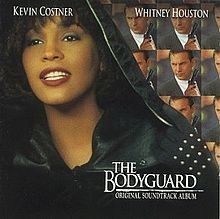Let there be no doubt: Classic-sounding soul is back. You can hear it in the sounds of recent, retro-minded British songstresses like Amy Winehouse, Duffy, and Adele. In popular underground revival acts like Sharon Jones & the Daptones, Sugarman 3 with Lee Fields, and Memphis’ own Bo-Keys. In comeback artists as famous as Al Green and as subcultural as Bettye LaVette. And, best of all, in the form of former Tony Toni Tone frontman Raphael Saadiq, a longtime revivalist of ’60s and ’70s soul styles whose new album, The Way I See It, is not only the best recent title in this mini-boom but maybe one of the year’s best albums in any genre.
Given all of this, it’s probably a little disappointing that the relaunched, now California-based Stax imprint hasn’t made more of a cultural/commercial impact this year, though it certainly hasn’t been from lack of trying. By my count, the new Stax has released half a dozen collections of (mostly) new music in recent months. (Along with several collections of released or at least older material, including the Otis Redding Live! in London and Paris.)
The most recent of these is the soundtrack to the upcoming film Soul Men, which hits stores November 4th. The film features Samuel L. Jackson and the late Bernie Mac as a couple of aging soul stars back on the road together, and the soundtrack mixes classic and modern in a manner keeping with the soul-centric times.
Three of the 12 tracks on Soul Men were produced by Memphian Scott Bomar at his Electraphonic Studio with the Bo-Keys on back-up. The first of these is the album’s lead track/anthem, “Soul Music,” with a lead vocal from Anthony Hamilton. This is an ace approximation of the Stax sound, with drummer Willie Hall and keyboard player Archie Turner giving a strong Booker T. & MGs vibe and punchy horns recorded by Willie Mitchell and his son Boo at Royal Studio. The song is sort of an “Old Time Rock & Roll” for soul music, evoking Arthur Conley’s similar but of-the-era “Sweet Soul Music.”
Elsewhere, Bomar leads the Bo-Keys through a faithful reading of the William Bell and Judy Clay classic “Private Number,” with younger singers Chris Pierce and Leela James laying down the vocals. The final Bomar-produced track is a reinterpretation of the Rufus Thomas song “The Memphis Train,” with vocals from Ryan Shaw.
The rest of the album mixes vintage cuts (from Isaac Hayes and Eddie Floyd), soul revivals from Jones & the Dap-Kings and Sugarman 3, classic covers (John Legend does “I’m Your Puppet”), and serviceable vamping from stars Mac and Jackson.
While less in the “classic” vein, a few other 2008 Stax releases give an indication of what old-time stars are more apt to do when left to their own devices.
Eddie Floyd — the second-tier soul belter perhaps best known for his anthemic “Knock on Wood” and his Otis Redding tribute “Big Bird” — actually cut his teeth in the ’50s with the vocal group the Falcons and came to Stax first as a songwriter. On Eddie Loves You So, his first album since 2002 and highest-profile release since the mid-’70s, Floyd digs into his own back catalog for a bunch of mostly self-penned titles drawn from across his career, many of them originally recorded by other artists (including Stax labelmates William Bell and Carla Thomas).
The sound is a more relaxed take on Floyd’s vintage style, befitting a soul man now in his 70s. The album opens with a slow, slinky reading of his “‘Til My Back Ain’t Got No Bone,” originally recorded by Stax labelmate William Bell. But the best Stax chestnut is “You Don’t Know What You Mean to Me,” a minor hit Floyd and Steve Cropper wrote for Sam & Dave. The version here exposes how shopworn Floyd’s voice has become, but the Stax-style organ groove and horn punctuation is irresistibly familiar, inspiring Floyd to push through his vocal limitations with gusto.
Elsewhere, Floyd’s deliberate phrasing and the sturdy harmony vocals make the pre-Stax semi-obscurity “Never Get Enough of Your Love” a highlight, along with Floyd’s toe-tapping solo reading of the Falcons’ classic “You’re So Fine,” the most familiar song here and the only one Floyd didn’t write.
Of probably somewhat less interest to Stax addicts is Nudge It Up a Notch, an album that pairs guitar master Cropper with Rascals singer Felix Cavaliere, one of the ’60s’ best blue-eyed soul singers.
Recorded in Nashville and produced by Cropper and Cavaliere with Jon Tiven, Nudge It Up a Notch is a much more contemporary-sounding album than Eddie Loves You So, for better or worse. Rather than replicate the precision playing of his Stax days, Cropper stretches out here on occasion, with traditional rock playing more akin to the modern blues scene. (Something familiar to anyone who has seen recent Booker T. & the MGs shows.)
With Cavaliere’s own keyboards playing off of Cropper’s guitar, instrumental tracks here, such as “Full Moon Tonight,” give some hint at what a new MGs record might sound like. But Cavaliere’s still-supple voice leads on most tracks, all of them new, collaborative songs that echo ’60s and ’70s soul and present-day blues.
If Eddie Loves You So is about recapturing the vintage Stax sound, Nudge It Up a Notch is about letting that sound age, unencumbered by nostalgia. Both are worthy goals.
Of less local interest is Moon Ride, a debut album from longtime producer/songwriter Leon Ware, perhaps best known for his work on the Marvin Gaye album I Want You.
Stax’s latest attempt at modern soul in the classic vein comes in the form of Nikka Costa and Lalah Hathaway.
Music-industry scion Costa is a blue-eyed soul revivalist in the vein of the current English wave. She had her moment as a mild buzz act earlier in the decade with her major-label debut, Everybody Got Their Something. One suspects her moment has passed, even as music culture has caught up with her retro-soul vibe. But Costa’s Stax debut, Pebble to a Pearl, which she co-produced and co-wrote most of the songs for, is a fine-sounding record that establishes her commitment to the music as a labor of love.
Hathaway, the daughter of ’70s soul star Donny Hathaway, is, like Costa, a onetime Virgin Records hopeful hitting restart with Stax. Her Self Portrait is a more modern-sounding album — more neo- than retro — but also a less distinctive record than Pebble to a Pearl.

